There’s one particular thing that lingered on after our conversation with Coco Montoya. The thing is, the Californian artist was already connected a few minutes before the time. And it is, maybe, a reminder of something, he told us, his old boss, John Mayall, used to say, “five minutes before time is on time”. This kind of attitude means a lot. It shows respect and attention by someone who’s constantly learning from every situation he has been trough in his lengthy yet non-linear career. Very few if any of his peers have been able to turn from sideman to band leader and doing so even switching from playing two very different instruments (drums and guitar). He’s on fine form on “Writing On The Wall” his new album out now on Alligator Records, recorded with his rock solid road band.
Interview with Coco Montoya
What’s your take on the new album? It is maybe, among your best records.
It was just the chemistry with everybody, producers and all the musicians that played on the album, my road band , which is something I have not done in a little while. I wanted to make sure we were all involved in the project on a lot of different levels. It was magical for us and I’m really proud of it and very happy with the results.
You have worked with Tony Braunagel before and I guess Jeff Paris played a key role too.
Yes, absolutely, all the guys were incredible on this project, they brought their talents and concentration, but Jeff was really important. Jeff became a co-writer with me and he really helped out in a lot of other things he went above the call of duty, he’s an amazing addition and a person who inspired me to do better. Beside being one of the most talented people I know, music wise, he’s a monster keyboard player, that’why I hired him, but he’s also a monster guitar player, harmonica, and he sings like a bird…I’m very grateful to have him in the band.
How did you choose the songs? Even the covers are quite unusual, from people like Andy Fraser, Bobby Bland or even a Lonnie Mack song.
“Be Good To Yourself”, the song from Fraser it’s because I’m a big Frankie Miller fan, that’s where I discovered it. I played it for Jeff and immediately he was “Oh we got to try to do this”. And I was really excited about it. I’ve done a couple of Frankie Miller songs in the past but this was a great opportunity to work out our rendition. Tony has a close connection with Miller himself, they’re friends. The Bobby Bland one came from Bruce Iglauer, he sent that to me. Right away we identified that we needed something that called attention to the blues, a blues song, from the basics and the groove on that was so much fun to play.
Bruce had also been bugging me for years to do that Lonnie Mack song. And I love the song, I used to watch Lonnie play all the time, but I was always a little bit afraid to attempt that until now. I never thought I could hit a vocal as sincere and honest as Lonnie, he would break your heart when he sing that song. Tony and Jeff gave me an idea how to flush it out and make it my own. The guys definitely were not afraid to find a voice for me in songs that I might have a tendency to try and emulate the singer, like Bobby or Mack, and that’s not the way to go about it. I don’t ever want to forget the first rule of blues: interpretation. Do it your way. Albert Collins used to tell me that all the time, “do it like you do it, don’t do it like I do it. It will be more interesting to somebody, either they like it or not, if you’re not imitating me.”
A couple of songs, like “Writing On The Wall” for instance, reminded me a bit of Little Feat. I know you were friends with Paul Barrere and Richie Hayward. Paul even produced your “Dirty Deal” album.
There’s no way you can not be influenced by Paul Barrere, Richie Hayward and the rest of the guys from Little Feat! You cannot be exposed to that and not get something from it. They are a big influence on my career and also on my friendships, we were very close friends, I miss Paul very much and Richie as well. Little Feat is still a great band, I still love to see them, I see Fred Tackett every once in a while. “Dirty Deal” was a lot of fun. The things that Paul would come up with… we picked up the songs and finally got the OK from Bruce Iglauer, we went trough this process that can be a bit daunting at times. But we got it done and the renditions we came up with were wonderful. It has a very different vibe, it’s rawer than the stuff I had done before.
After that one, you did another album produced by Keb’ Mo’, which was also very different.
Absolutely, and I love “I Want It All Back”, simply because Kevin really said “I’m gonna produce it and I want to take some chances, you’re gonna get your but kicked. Probably some people are not gonna like this very much, but I think it’s good for your career, I know this other side of you.”
The blues has always been the basis of everything for me, but there’s a lot of other influences where I grew up. I love a lot of doo-wop stuff and that’s where Kevin went right away, he said, “if there is any old song you’d love so much that we possibly want to redo…” And we came up with a bunch of songs, some did not even make it on the record, but again we were taking chances. Which was great for me. There’s a lot of great music that I would like to explore.
This upcoming november it’s gonna be thirty years since Albert Collins passing. And in that year you also left Mayall’s band and started out on your own. What does it feel like if you think back to those days? It surely marked a crucial time for you.
It was a very stormy time in a way, emotionally for a lot of reasons. Albert being ill with cancer and I was trying to be there for him and also my time with John Mayall was ending. I’d done all I could in Mayall’s band, it was time for a change, but I did not know what I was gonna do. Also my sobriety came around in late 1992, so all that was happening at once. When I left John Mayall, I basically had no plan, no idea, I was not even sure if I was gonna play music anymore. Maybe I was going back to be a bartender somewhere in L.A.? It was a very scary moment. Albert said I needed to pursue it, before he passed he said “you gotta go out son, you got to do it, all the work you did with John, you can’t just throw it away”.
What was the hardest thing in fronting your own band?
I called that opening my own store! And it’s amazing how you can stop being a sideman and go to the other side of it, actually start driving the bus. And it’s all up to you. That’s one thing with the sobriety that helped me to do, I knew that as a user of drugs and drinks I was never gonna be able to do it. It’s too much responsibility to be under the influences. So it was an amazing adjustment. And what was really amazing is that you go through situations when you start off doing your own thing and all these things that happened to Albert and to John…your memory clicks in, when there’s a problem here with the promoter or the hotel or something…I could envision all these scenes that I witnessed with them to see how they dealt with these things. All that started coming back and flooding me, there was a strenght inside me that I did not know I had.
Then you recorded “Got A Mind To Travel”.
Yes and the record went to the Zomba Music in Europe and it was doing well but after that New York wanted nothing to do with it. We went to Bruce Iglauer first and he passed on it (sorry Bruce!) which is OK, but we went to him first because we respected him for all his history with Albert, Lonnie Brooks, another one of my heroes…Next thing we got, we went to Blind Pig people and they took it up. It was a learning process at the beginning, but looking back now I was very lucky. It was not too painful.
Anyway Bruce signed you two times later on.
We’ve had an amazing relationship me and Bruce. We laughed, we hugged, we cried, we have been pissed at each other, we disagreed a number of times…but we got some great music done. All my material with Alligator is stuff I’m really proud of. And when Bruce is on, he is 100% on and with you and all the crew at Alligator is really behind you. That’s why we always come back! (laughs) There’s no bunch of people like that.
You said sometimes that when you started out playing drums with Albert Collins you were not a blues drummer, is that it?
That’s pretty much true. I knew how to shuffle and I could understand a slow blues to a certain degree, but there was so much more to learn. I really was not prepared for Albert. He was in a desperate need for a drummer, his drummer had left quite suddenly. We’re talking about him calling me at home saying “hey we got some gigs, can you make it?”. Me I was scared to death, this was Albert Collins! But I said “sure, I’ll do it”. I figured we would have a couple of rehearsals so I could get to know the stuff…but he said, “I’ll come by to pick you up in a couple of hours, we’re going to Eugene, Oregon”. That was my first gig. We drove all along the coast of California to Oregon and the guys in the band were telling me, “this is when you stop, this is where you bring it down…”. They were telling me the whole arrangements, No rehearsals. I felt so bad, but I thought we did good, it was a lot of fun. I told Albert, “I know you were in a desperate situation, if you can get somebody who really knows how to play your music, I’ll go home. I just want to make sure you’re OK. But I love your music I want to learn more.” And he said “you stick with me and I’ll teach you”. And he did.
What was that like to be on the road with him in the early Seventies?
It was just what I needed. I never took any lesson, I have no formal training. I learn by my ear which left some holes in my playing abilities…I didn’t know how to read, no theory, nothing. I didn’t study the instrument in that way. And Albert was of the same thing. He just does what he does. He never analyzed that. I never heard the word pentatonic scale from him in his life. He didn’t care about that. Which was perfect for me. I understood by observing him and feeling the emotions and the way he did things. That was perfect because it’s the way I learn music. Just open you ears and your heart. Of course you have to practice and do stuff, which I did. But didn’t have the education that other guys had, I wish I had that, it could have helped me, probably I’d still be a drummer! I started getting better just being around Albert. He would show me something at the soundcheck it was just me and him and he would play a groove and say “Play along, don’t think about it, feel it. You’re thinking too much”. That’s the way I did it. I was not a drummer like David Garibaldi from Tower Of Power! David killed my drumming career.
In those years Albert was not doing any recordings, he had no record contract until he signed with Alligator.
Yes, that is absolutely true. He had an album out on Tumbleweed, what was it called?
“There’s Gotta Be a Change”?
Yes. And I like that album, Jesse Ed Davis was on it and I think Bill Szymczyk produced it. But times were rough. I was a kid and I didn’t care, we made 45/50 dollars a night on the road. If you made 75 bucks you were rich! I was having a ball, I was playing this man’s original music and I was just drinking that up. Absorbing all of that. It was a great time for me to learn something from watching the magic and the power that Albert had. I was just confused about it. How does he do that? How does he drive all those miles and get up there with half of the band? I mean, maybe there was new keyboard player who did not know any of his stuff….Albert would pull us through any gig and get an encore. That’s how powerful he was. He carried us to the next thing. How do you persevere like that? There was a lot to learn from him. He was like a father, i was young and stupid and he really watch over me.
Did you meet and befriended other artists on the West Coast scene back in the day? People like Pee Wee Crayton or Shakey Jake…
…and Big Joe Turner, Smokey Wilson. I got to meet them all through Albert. I played a couple of gigs with Smokey. I used to back up Big Joe. All my other friends, like Walter Trout, we were getting called for these gigs. “Hey Big Joe needs a drummer or a guitar player who can make it?”.
Doug Macleod?
Oh Doug is one my favorite buddies, we go way, way back. I’ve known him for so many years. We call him Dubb!
Like George Smith used to call him.
Exactly! So we all do. He’s one of the sweetest people on earth. Me and him did survive a lot of stuff together as far as learning the business. It was an honor to write songs with him. There was an amazing amount of music in those days in L.A. You’d run into great musicians like Hollywood Fats or William Clarke…I used to drive to school James Armstrong, he was just a kid, he used to hang around with my step-brother.
I guess maybe even people like Robert Cray, Curtis Salgado and Richard Cousins.
Oh yes, they were the northwestern guys! I met them while I was playing wiht Albert and we’re still friends to this day. We talked about that quite a bit with Robert, how we were kids and we did not care what the money was, we just wanted to hang around those guys. Just be in their presence, the vibe…And you got to meet all the other people through that, like B.B. King or Lowell Fulson. I got to play with Lowell several times.
But at some point you quit the music business and it was only later on with John Mayall that you were back in?
Yes, well as I said, I didn’t care about the money as much, but I had payments for my vehicle and bills started piling up, we were working, but not always consistently. Eventually I had to take care of business, take a day job. Which I did. I went to work as a bartender and I figured I was out of the business. As a drummer it was over for me, I reached as high as I could get. I played guitar over the weekends at jam sessions or whatever, with no responsibility, That was very liberating. And that’s where John Mayall heard me, in Hollywood. I had an amp and a guitar and I would just go to places to jam. Out of blue, I was working at this pub in Laurel Canyon, John called down there, but I hang up on it! There were a lot of english guys that came to the pub and I thought, “yes, come on, you’re really John Mayall, sure”. But he called back and said, “No, it’s really John Mayall, I’m reforming the Bluesbreakers, Mick Taylor’s run off with Bob Dylan, would you like an audition for the band?” He got a tape of the jam in Hollywood. That’s the way it happened. Being asked to join the Bluesbreakers that was like my Beatles! All those guys…the history is incredbile. It didn’t hit me until I said yes and we were starting to rehearse. I thought, “oh my God, what have I got myself into?” How do you do something that’s going to be as great as what Clapton did in that band? And John pulled me aside and said, “stop trying to be everybody else, be yourself”. It’s like I’ve told you before, the first rule in blues is interpretation. “Eric’s not here, you have to play these songs like you own them”, That’s what John said. And he was liberating me. It made so much sense. I don’t have to be Eric Clapton or Mick Taylor. They’re my heroes and incredible players. But it was time for me to make my own statements, on particular songs like “Have You Heard”.
And it lasted like ten years? John had also a comeback with a streak of very good records, for instance I like a lot “A Sense Of Place”.
Yes, about ten years. And I remember that album, it was a lot of fun to make. We got a JJ Cale song on it, Sonny Landreth came to play, we did “Congo Square”…there were great songs that pushed me. John was really good at orchestrating everything. I think we did some wonderful work together. John was another school of learning, very different from Albert. John was always on time. He used to tell me, “five minutes before time is on time”. John was very much taking care of business. I remember one time, in fact I think it was in Italy, we were staying by the Adriatic sea, three or four weeks with no day off and six or seven shows a week…or if there was a day off it was a travel day. And like typical musicians you moan when there’s no work but when you get it you say “oh, I need a break”. And we said, “John we should get a day off here” and John said “I didn’t bring you out here for a vacation, we’re here to work. I’ll tell you what. I’ll work you to death, make some money, you can stay here or you can get back home get your girlfriends and then you go on vacation. Me I came here to work. Let’s get the job done”. And he was right. Stop complaining, you got it good right now. John knew exactly what he wanted. He would not let anybody deter him, stop him. That was really a lesson. I was very blessed to be where I was, to have a personal experience with those people. Me and Walter Trout often talk about it, we were at the right place at the right time. We got so much education from these people on so many levels, not just music playing, but dealing with life.
Matteo Bossi


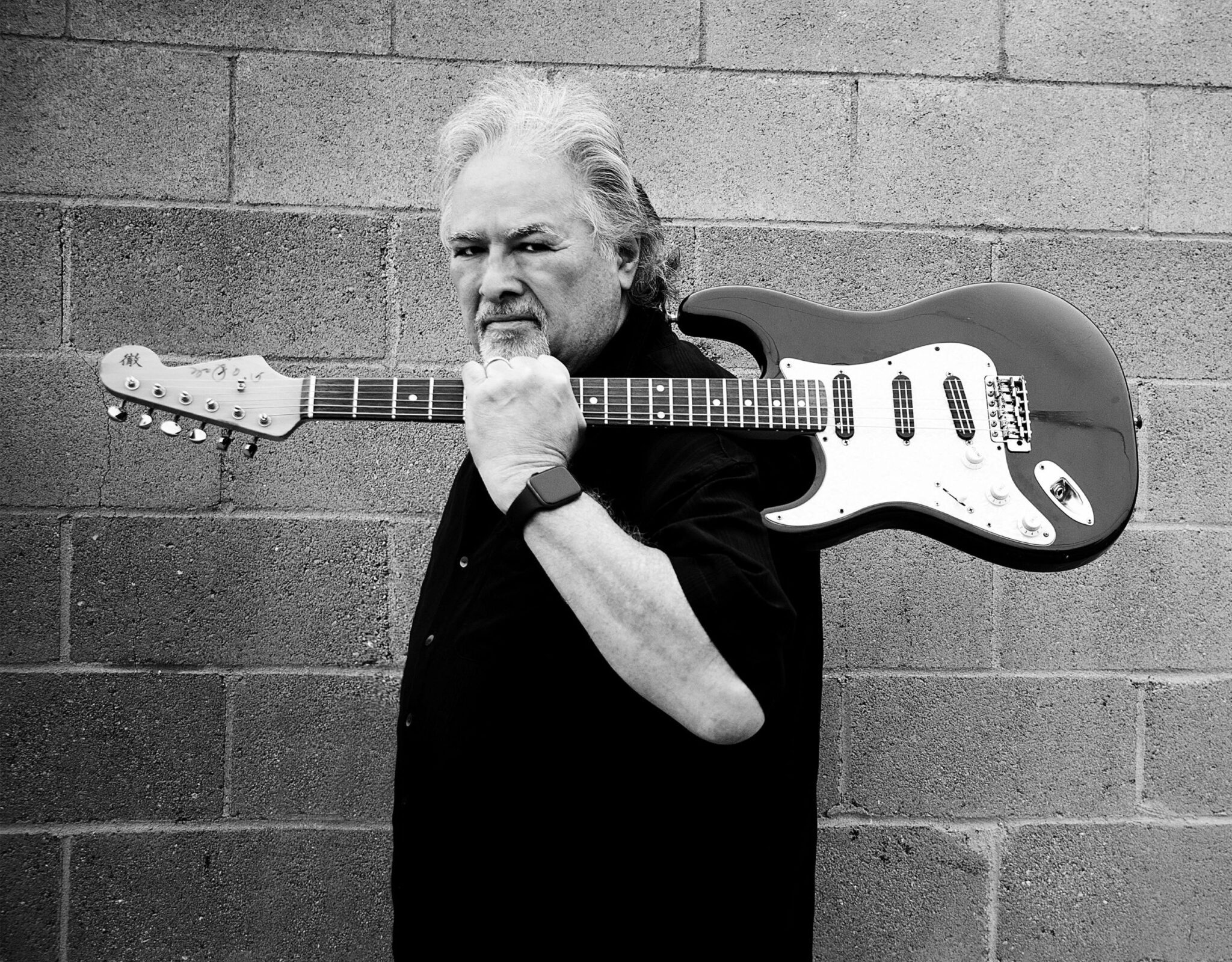
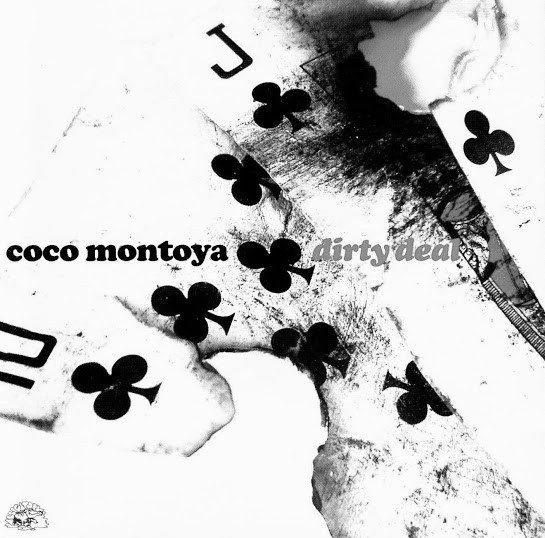
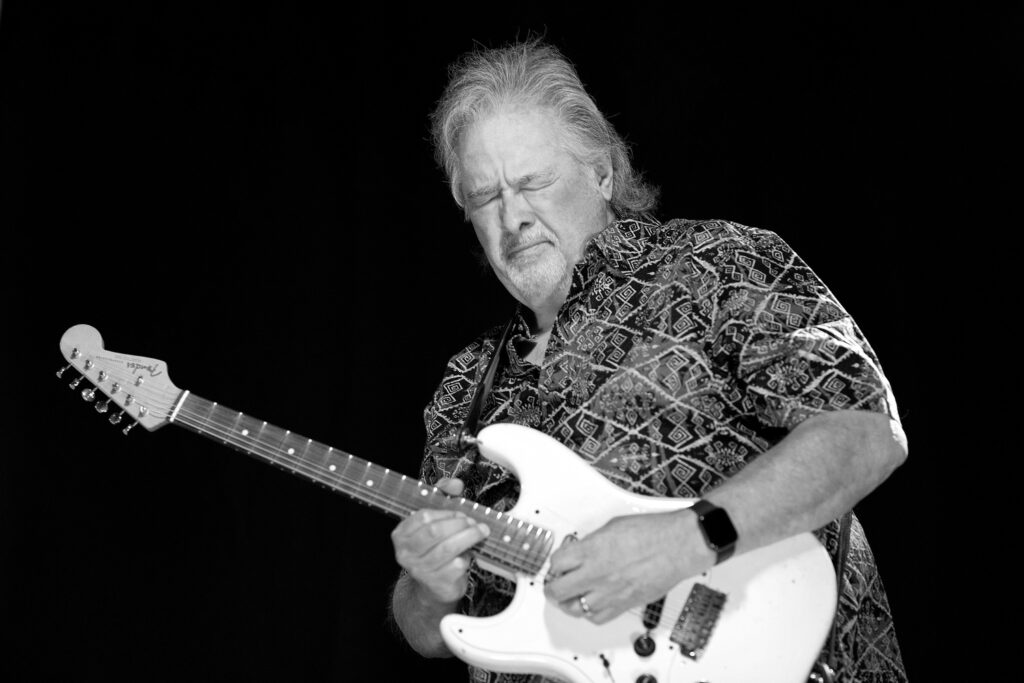
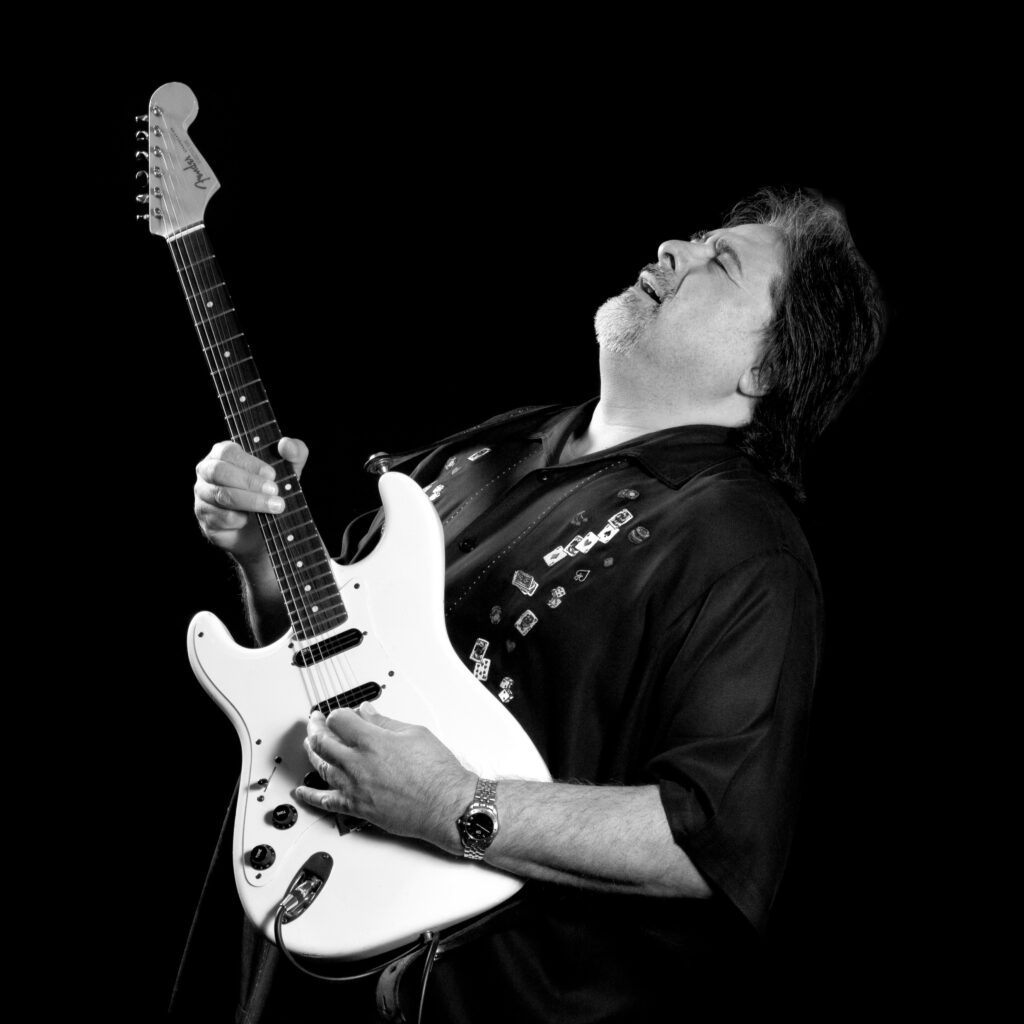
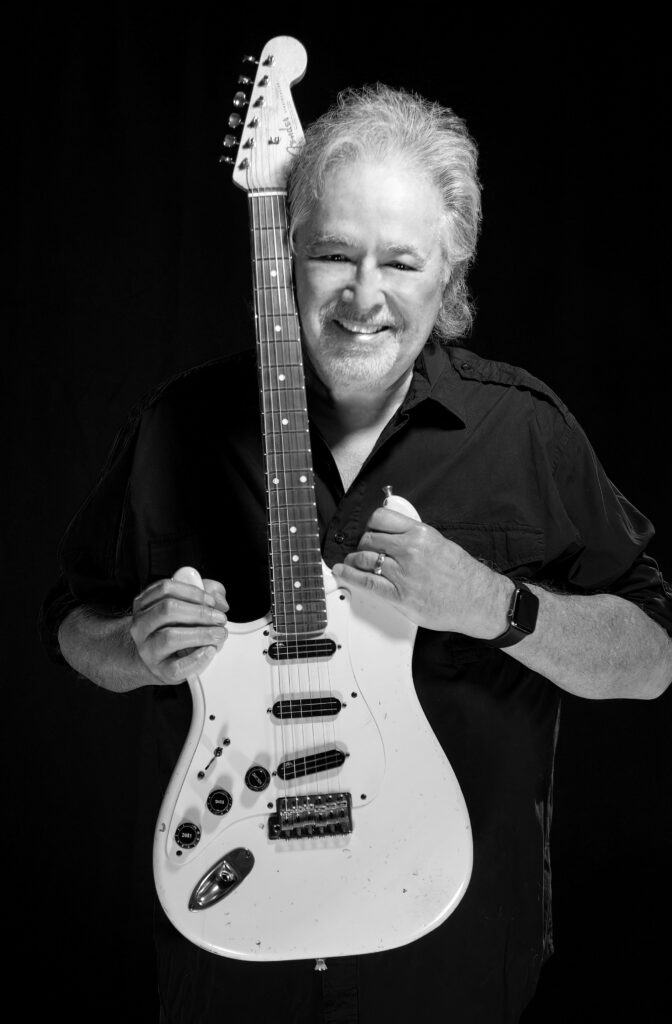
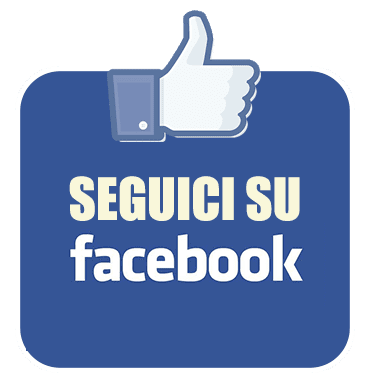
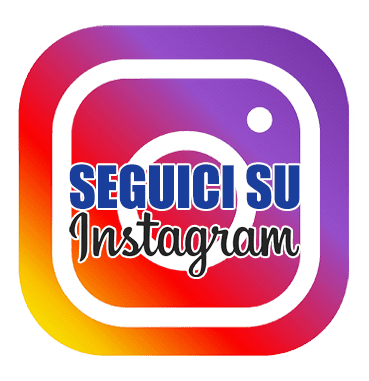

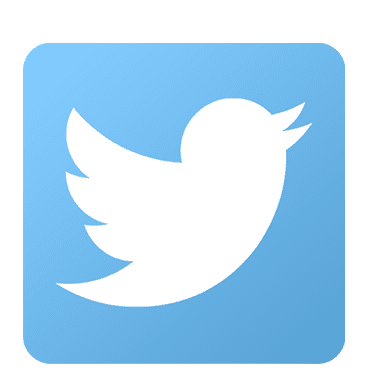

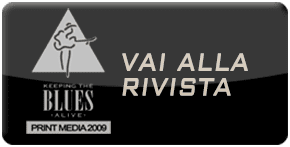
Comments are closed